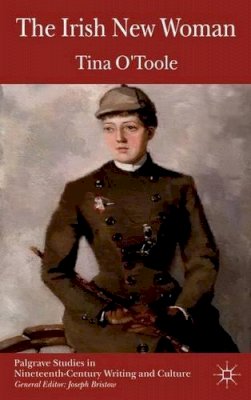
Stock image for illustration purposes only - book cover, edition or condition may vary.
The Irish New Woman
Tina O´toole
€ 66.66
FREE Delivery in Ireland
Description for The Irish New Woman
Hardback. The Irish New Woman explores the textual and ideological connections between feminist, nationalist and anti-imperialist writing and political activism at the fin de siecle. This is the first study which foregrounds the Irish and New Woman contexts, effecting a paradigm shift in the critical reception of fin de siecle writers and their work. Series: Palgrave Studies in Nineteenth-Century Writing and Culture. Num Pages: 216 pages, black & white illustrations. BIC Classification: 1DBR; 2AB; DSBF; JFSJ1. Category: (P) Professional & Vocational. Dimension: 157 x 218 x 17. Weight in Grams: 380.
The Irish New Woman explores the textual and ideological connections between feminist, nationalist and anti-imperialist writing and political activism at the fin de siècle . This is the first study which foregrounds the Irish and New Woman contexts, effecting a paradigm shift in the critical reception of fin de siècle writers and their work.
The Irish New Woman explores the textual and ideological connections between feminist, nationalist and anti-imperialist writing and political activism at the fin de siècle . This is the first study which foregrounds the Irish and New Woman contexts, effecting a paradigm shift in the critical reception of fin de siècle writers and their work.
Product Details
Publisher
Palgrave Macmillan
Number of pages
216
Format
Hardback
Publication date
2013
Series
Palgrave Studies in Nineteenth-Century Writing and Culture
Condition
New
Weight
379 g
Number of Pages
204
Place of Publication
Basingstoke, United Kingdom
ISBN
9780230313910
SKU
V9780230313910
Shipping Time
Usually ships in 15 to 20 working days
Ref
99-15
About Tina O´toole
Tina O'Toole is Lecturer in English in the School of Language, Literature, Culture and Communication at the University of Limerick, Ireland.
Reviews for The Irish New Woman
'O'Toole has admirably accomplished her stated goal of 'complicat[ing] and enrich[ing] conventional narratives of literary history as well as the discourses of gender, sexual and national identities.'' Maureen O'Connor, Irish Literary Supplement
.png)